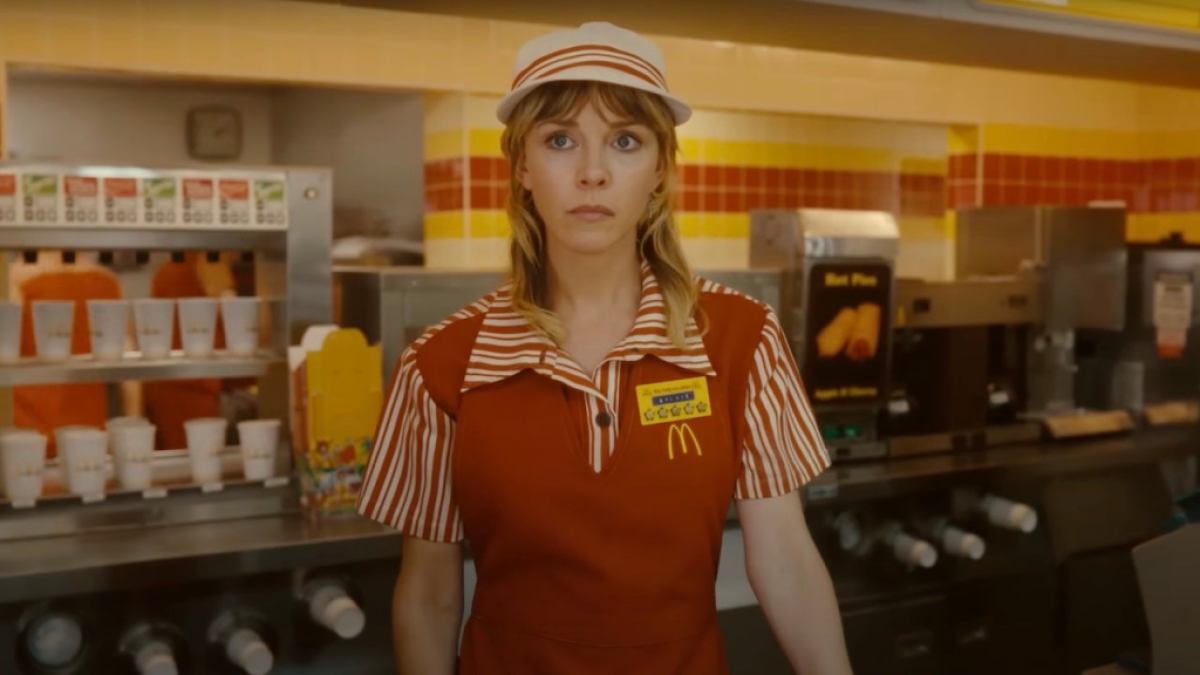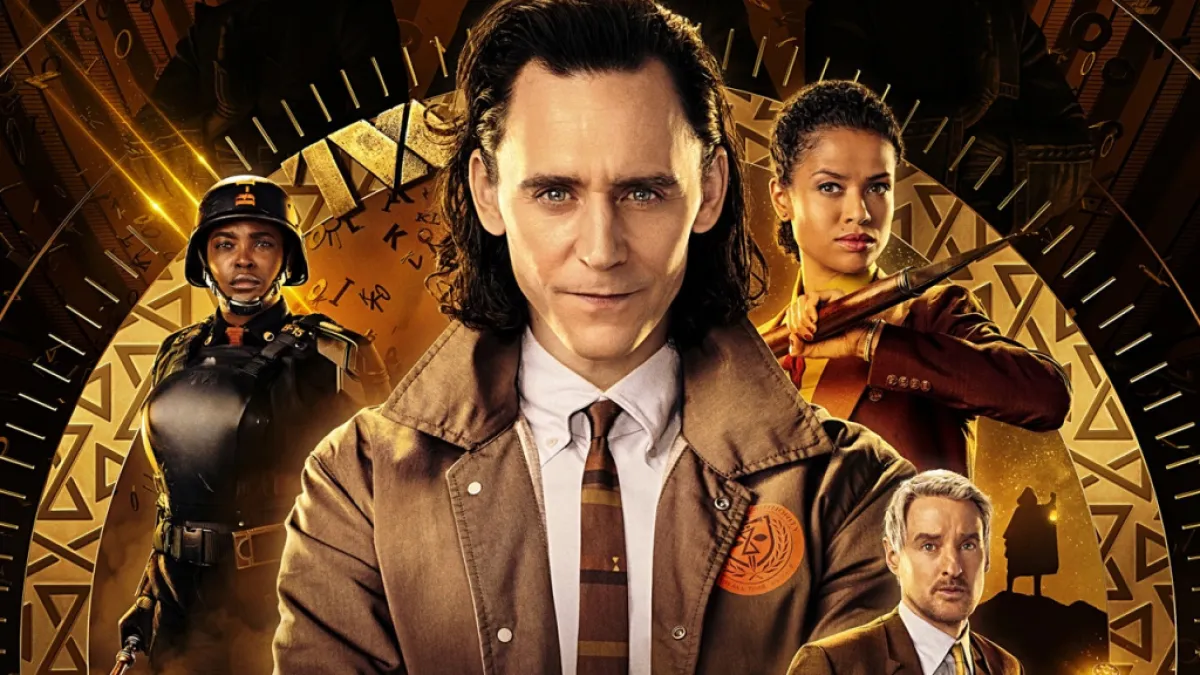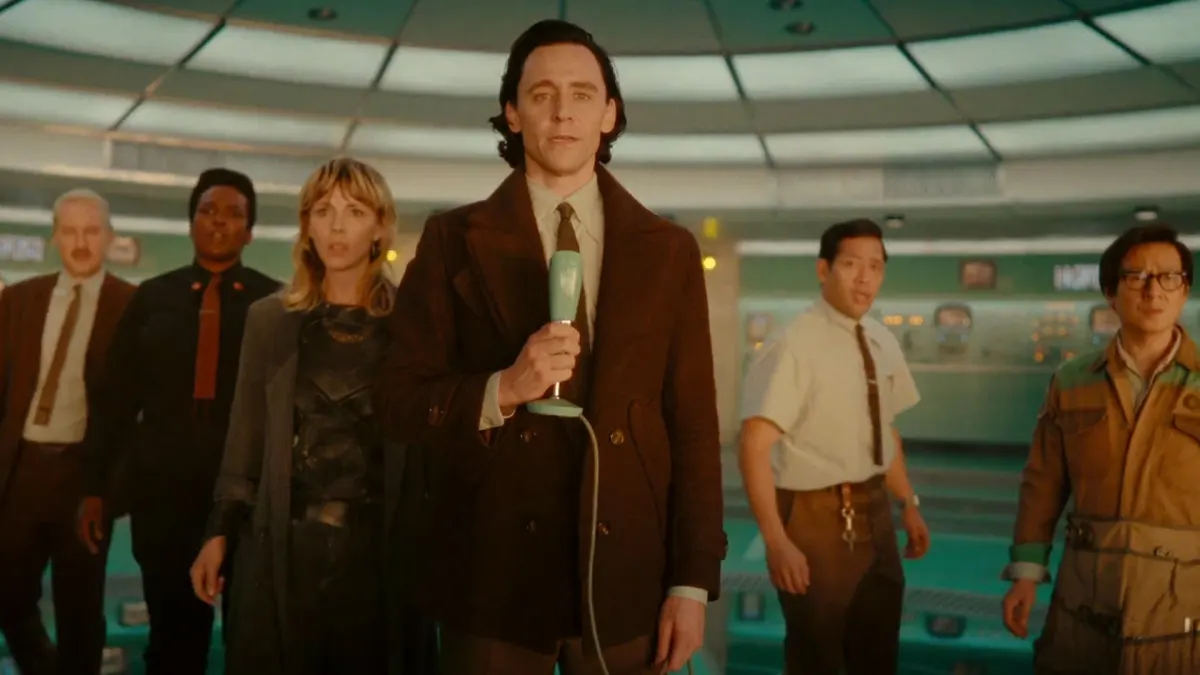This analysis of Loki contains very light spoilers for the first two episodes of Loki Season 2, as well as some slightly heady discussion of Modernism and architecture — strap in, folks!
The second season of Loki is about the end of all things. It is also another addition to this year’s popcorn entertainment contemplating an absent deity, as Mobius (Owen Wilson) summarizes, “Everything you’ve been doing is wrong and all your gods are dead.” Following the death of He Who Remains (Jonathan Majors) at the end of the first season, the Sacred Timeline is fracturing. The walls of reality are crumbling down. Everything and everywhere is hurtling towards oblivion.
One of the things that distinguishes Loki from other entries in the Marvel Cinematic Universe (the MCU) is its emphasis on the workplace. The bulk of the show unfolds around the Time Variance Authority (the TVA), an organization tasked with policing the timeline. It is a massive and sprawling bureaucracy, populated by functionaries in suits and their jackboot enforcers. Even Loki (Tom Hiddleston) starts wearing a suit and tie as he blends into the workplace.
As much as Thor (Chris Hemsworth) might joke that the Hulk (Mark Ruffalo) is “a friend from work” in Thor: Ragnarok, the MCU has never really been especially interested in blue- or white-collar workers. The only other Marvel Studios offering to pay this much attention to a work environment was She-Hulk, and that took the form of a very broad sitcom. In contrast, Loki is fascinated by the layers of bureaucracy that shape and guide its central institution.
Related: Best Loki Stories in Marvel Comics History

In Loki, there is no sense that these people are anything but their jobs. Indeed, the first season revealed that the TVA was staffed by brainwashed variants who had been plucked from the timeline, and so have no life outside the organization’s sprawling bureaucracy. In the second season premiere “Ouroboros,” Loki and Mobius meet the technician Ouroboros (Ke Huy Quan), also known as “O.B.,” who has apparently been manning the same service desk for eons, going centuries between human contact.
Most of the interaction in Loki, even the seemingly personal ones, are framed through the lens of work. When Casey (Eugene Cordero) meets O.B., he is star struck. O.B. “wrote the TVA Guidebook.” Casey presents his copy, searching for an autograph, “Will you sign mine for me?” It’s a sequence that provides a wry contrast to the star-studded movie premiere for in-universe film Zaniac that opens the episode, with rogue TVA operative X-5 (Rafael Casal) pretending to be movie star “Brad Wolfe.”
Even later in the episode, after Loki and Mobius have apprehended X-5, the only small talk that Mobius can make with his former colleague is related to work. “Tell me about Zaniac,” Mobius implores X-5, who insists that Mobius doesn’t actually care about a movie that he’s probably never going to see. It’s the only frame of reference that Mobius has, the only way that he can relate to another person. There is no sense that a person exists outside of their work.
One of the interesting elements of the second season of Loki is the implication that the TVA has somehow survived the death of He Who Remains. Without any architect guiding the organization, it seems to stumble forward like some sort of bureaucratic zombie. Some agents, such as X-5, have taken advantage of the chaos to escape from their professional obligations into the fracturing timeline. However, most of the cast are still doing their jobs, going about business as usual.
Theoretically, the TVA no longer really exists. Its entire raison d’être has been exposed as a lie and its creator has been murdered. However, characters like Loki, Mobius, O.B., and Casey are still doing the work as if nothing has happened. There are any number of real-life antecedents for this, from government employees showing up during recent shutdowns to Weinstein company staff continuing to work after the company filed for bankruptcy.
Indeed, even those refugees who flee the TVA still find themselves defined by their work. X-5 is a movie star, a job that is arguably all-encompassing and in which there is no divide between professional and personal. Even Sylvie (Sophia Di Martino), the Loki variant who murdered He Who Remains, arrives in an alternate timeline looking for a job. In a bit of product placement woven into a larger advertising campaign, Sylvie finds herself working at an alternate universe McDonalds.
When Loki and Mobius finally track Sylvie down, they don’t visit her at home. There is no sense of the personal life that she has created in this timeline. Indeed, though she appears to have a truck, the episode doesn’t offer a glimpse into her homelife. Instead, her entire existence is defined by her job at McDonalds. “Can we talk?” Loki asks her, standing at the counter. “My break’s in five minutes,” she replies. When they meet outside, she warns him, “It’s a short break, so talk fast.”
More than any other Marvel Studios production, Loki is engaged with the idea of “late capitalism.” It is particularly fascinated by the intersection of capitalist philosophy with eschatology. The second episode of the first season, “The Variant,” set its climax in a branched version of 2050 Alabama, “a corporate town owned by Roxxcart until it’s wiped out by a hurricane.” In the midst of that hurricane, suggesting the ravages of climate change, Loki chased Sylvie through a sprawling Roxxcart Mall.
Related: Loki Recap: Season 2’s Premiere Embraces the Problem of Timelines

A quote attributed to both Fredric Jameson and Slavoj Žižek suggests that “[i]t’s easier to imagine the end of the world than the end of capitalism.” In some ways, that is what Loki is about. Reality itself is coming undone; an idea that certainly resonates in an era of climate change, ascendent authoritarianism, economic uncertainty, and fake news, particularly in the wake of a massive global pandemic — but capitalism continues. Many predicted the pandemic would bring massive social change, but it largely hasn’t.
Loki often seems to be about this. It is about the necessity of work, even at the end of the universe. Loki, Mobius, O.B., and Casey have no choice but to continue doing their jobs, even as the institution crumbles around them. The second episode of the second season opens with Mobius and Loki chasing down X-5 for abandoning his post at an organization that is a shell of its former self. “I went down and got my life,” he protests. “So what exactly are you mad at me about?” Nobody gets to quit. Nobody gets to leave the office.
That opening sequence is interesting for a number of reasons. Attending the premiere of Zaniac in London, Loki dons a tuxedo, an allusion to the longstanding rumors that Tom Hiddleston might play James Bond. Chasing X-5 through the city, they confront him on the Strand. In the background of the scene, there’s graffiti scrawled prominently on the wall. It warns viewers, “Less is enough.” It’s a short and simple statement, but one that feels tied to the core themes of the show.
Less is Enough is the title of a treatise on Modernism written by Pier Vittorio Aureli. This feels somewhat pointed, given the obvious influence of Modernism on the production design of Loki. According to the show’s production designer, Kasra Farahani, his “first and foremost inspiration was Modernism.” Although Modernism is frequently associated with Soviet and Eastern European communism, it also has ties to capitalism.
Aureli’s title is a rejoinder to Modernist architect Ludwig Mies van der Rohe, who embraced poet Robert Browning’s assertion that “less is more.” As Aureli has noted, the idea that “less is more” resonated “with the politics of austerity that capital has imposed all over Europe and beyond.” Discussing monasticism, a movement that exerted an influence over French Modernism, Aureli mused that the Church “glorified work itself” and “[i]n modern times, we are expected to commit fully to work, so it becomes the meaning of life.”
Related: Loki Season 2 Is a Messy, Ambitious, and Enjoyable MCU Series
Aureli’s observations resonate with Loki. The TVA is both a bureaucratic office and a religious institution. Its bureaucrats and functionaries protect “the Sacred Timelines.” Its history is recounted both in retro orientation videos and in stained glass windows. He Who Remains is both a boss and a god. Loki is both a Norse deity and an office drone. When Loki returns from his encounter with He Who Remains, he talks to Mobius in a religious fervor, “We need to kill the devil.”
Within Loki, work has become the meaning of life to these people. The show’s central characters seem incapable of imagining life outside their suits and offices. Mobius keeps a jet ski magazine at his desk, but has never actually ridden one. There’s no indication that he has even looked at the lives that he might have enjoyed outside the TVA. Indeed, they’re actively trying to get staff to come back to the office, including the organization’s computer system, Miss Minutes (Tara Strong). As Casey puts it, “We have to convince a rogue artificial intelligence to come back to work?”
As with the first season, it feels like Loki is perhaps a little too noncommittal on this central theme. It doesn’t seem like the show has a central argument to make about this status quo, beyond acknowledging the inherent absurdity of it. As ridiculous as this setup might be, Loki cannot imagine an alternative to it. There is perhaps no image more quintessentially Loki than Sylvie lying on the hood of her car outside McDonalds as her boss (Jack Cunningham-Nuttall) locks up for the night.
“Do you think you’ll be in tomorrow, though?” he asks. On Loki, there can only be one answer.






Published: Oct 13, 2023 09:00 am